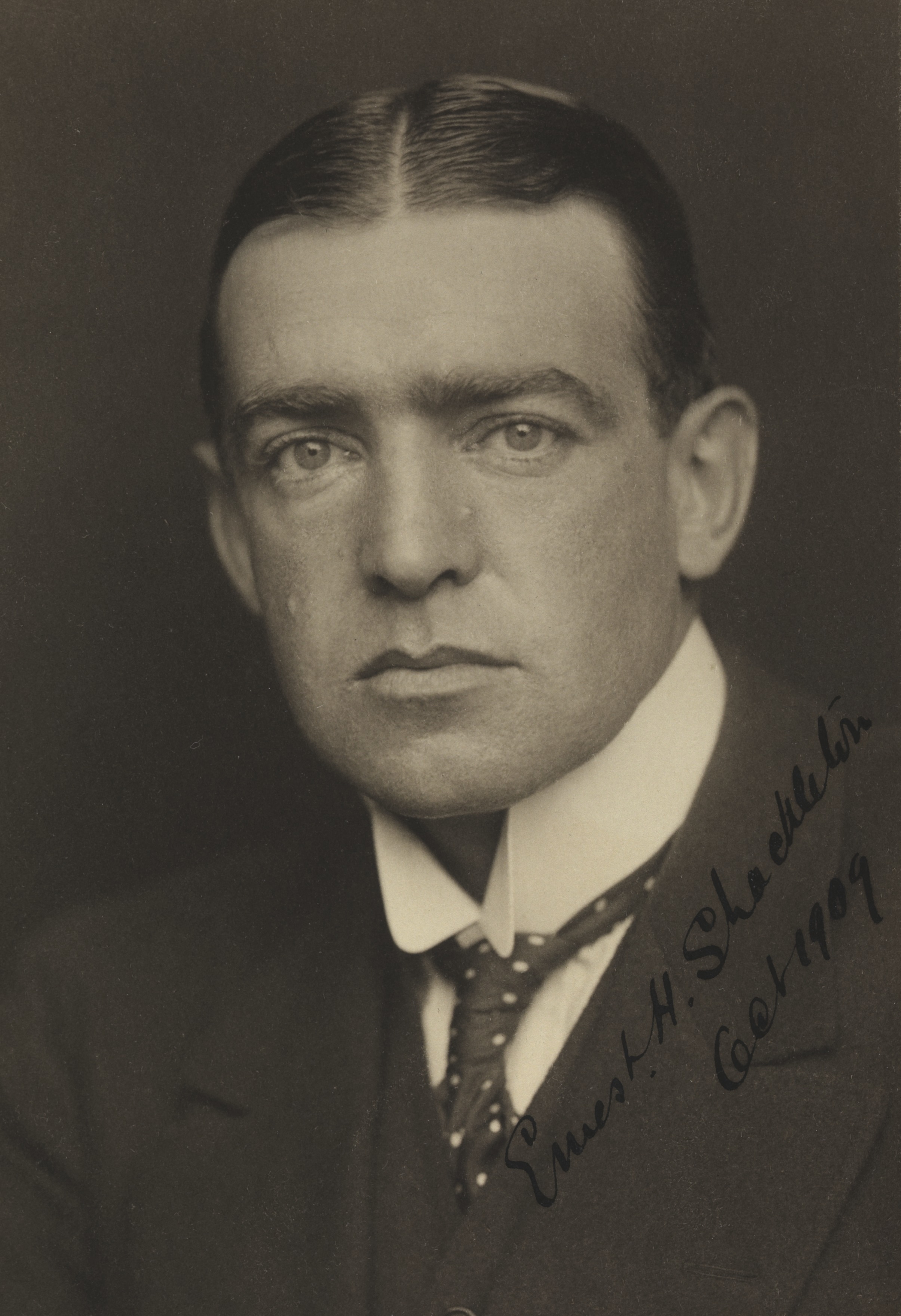Difference between revisions of "Template:Westarctica.wiki:Today's featured article"
Westarctica (talk | contribs) |
Westarctica (talk | contribs) |
||
| (77 intermediate revisions by the same user not shown) | |||
| Line 1: | Line 1: | ||
[[File: | [[File:Ernest Shackleton before 1909.jpg|250px|left]] | ||
'''[[Ernest Shackleton]]''' was a polar explorer who led three British expeditions to the [[Antarctica|Antarctic]], and one of the principal figures of the period known as the Heroic Age of Antarctic Exploration. | |||
After the race to the [[South Pole]] ended in December 1911 with [[Roald Amundsen]]'s conquest, Shackleton turned his attention to the crossing of [[Antarctica]] from sea to sea, via the pole. To this end he made preparations for what became the Imperial Trans-Antarctic Expedition, 1914–17. Disaster struck this expedition when its ship, ''[[Endurance]]'', became trapped in [[pack ice]] and was slowly crushed before the shore parties could be landed. The crew escaped by camping on the sea ice until it disintegrated, then by launching the lifeboats to reach Elephant Island and ultimately the inhabited island of South Georgia, a stormy ocean voyage of 720 nautical miles and Shackleton's most famous exploit. | |||
'''([[Ernest Shackleton|Full Article...]])''' | |||
'''([[ | |||
Latest revision as of 02:55, 15 April 2024
Ernest Shackleton was a polar explorer who led three British expeditions to the Antarctic, and one of the principal figures of the period known as the Heroic Age of Antarctic Exploration.
After the race to the South Pole ended in December 1911 with Roald Amundsen's conquest, Shackleton turned his attention to the crossing of Antarctica from sea to sea, via the pole. To this end he made preparations for what became the Imperial Trans-Antarctic Expedition, 1914–17. Disaster struck this expedition when its ship, Endurance, became trapped in pack ice and was slowly crushed before the shore parties could be landed. The crew escaped by camping on the sea ice until it disintegrated, then by launching the lifeboats to reach Elephant Island and ultimately the inhabited island of South Georgia, a stormy ocean voyage of 720 nautical miles and Shackleton's most famous exploit.
